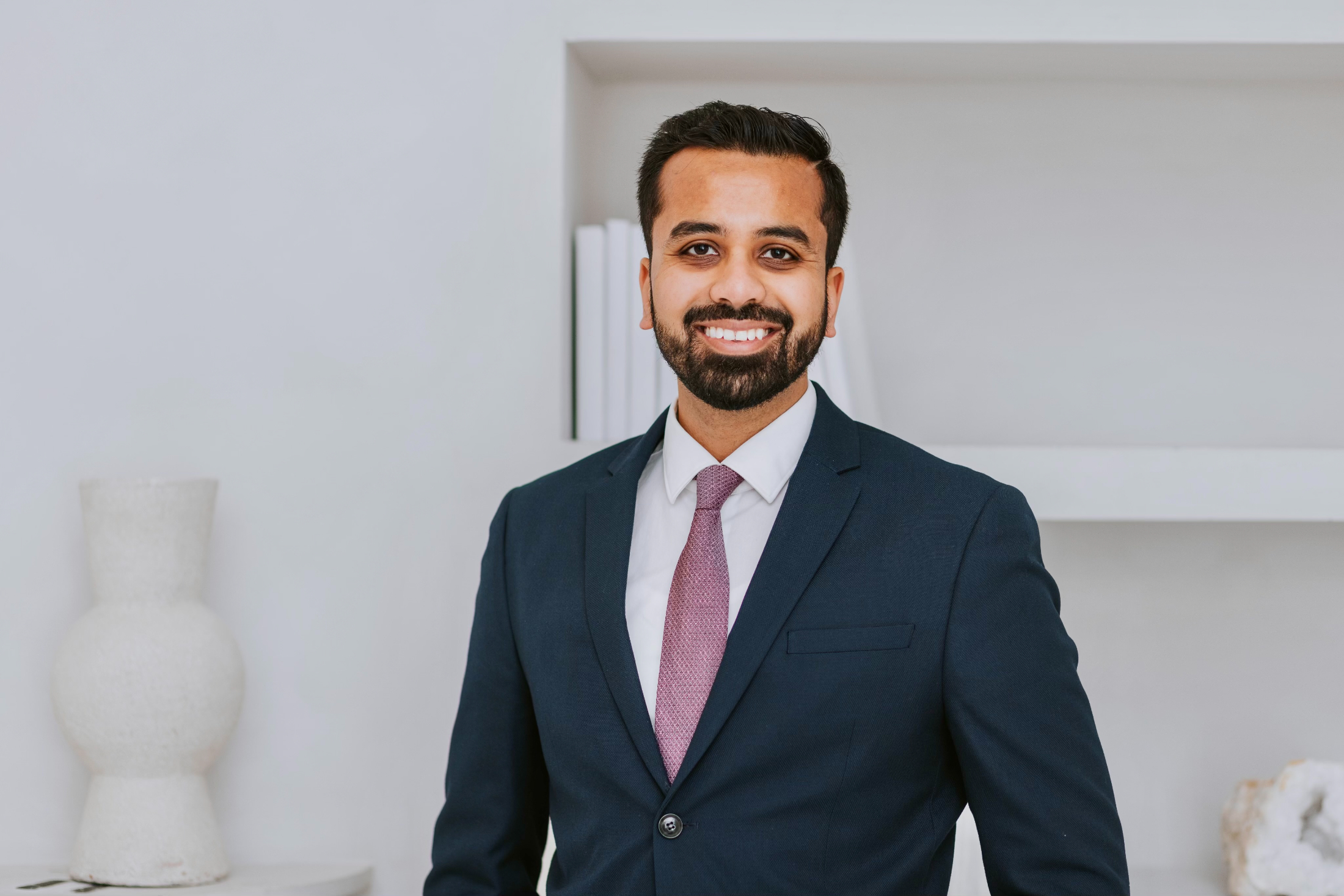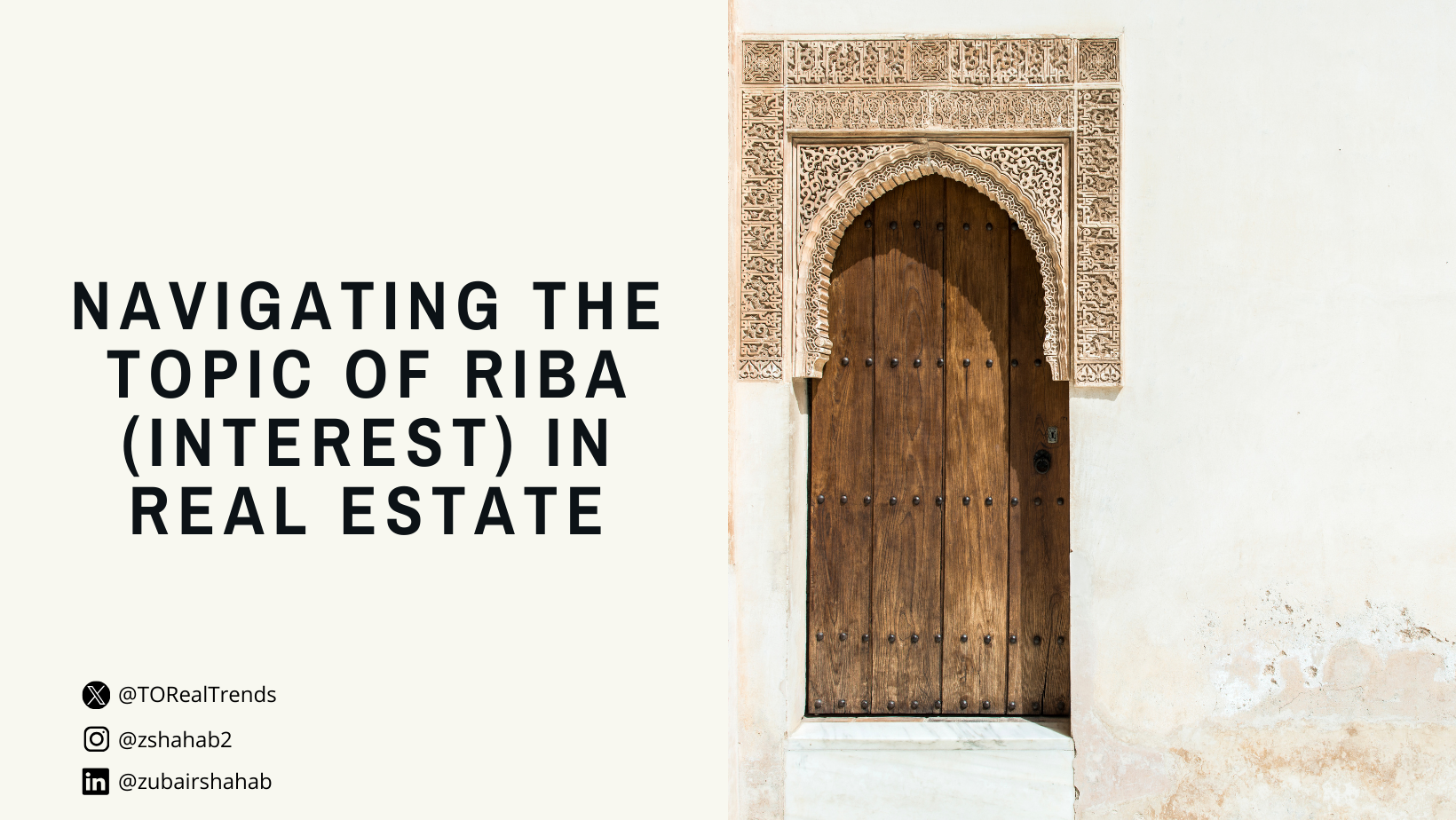As a Muslim realtor, the number one question I get asked by far concerns the legality of a mortgage that involves riba (interest). The questions can range from any of the following:
Is interest the same as riba?
Why is riba haraam?
Am I allowed to get a mortgage and pay interest as a Muslim?
What is an Islamic mortgage and are they really halal?
Is there any interest involved in pre construction investments?
Some of these questions require considerable explanation which I hope to do, inshAllah (God willing), in future posts. But this post is designed to be a Muslim’s FAQ reference guide when it comes to mortgages and their permissibility. Please revisit this post periodically for new updates and links. We are continuously working on integrating Islamic principles into our real estate decisions. Stay tuned for the latest developments as we advance in this direction.
Is interest the same as riba?
In the context of Islamic finance, interest and riba are often used interchangeably, but they have distinct meanings.
Interest: Interest generally refers to the cost of borrowing money, usually calculated as a percentage of the principal amount. It is a common feature in conventional financial systems and is used to compensate lenders for the risk and opportunity cost of lending money.
Riba: Riba, on the other hand, is a broader concept in Islamic finance. It refers to any unjust or exploitative increase in value, whether in loans or in trade. In the context of loans, riba is essentially what is commonly referred to as interest in conventional finance. Islamic teachings prohibit riba, considering it exploitative and harmful to both individuals and society.
Why is riba haraam?
Very simply put, riba is haraam (forbidden) in Islam because it promotes inequality. Islam is a religion that fundamentally values and promotes equality among all individuals, and therefore does not permit an economic structure where the rich can take advantage of those less fortunate by charging an excessive amount for the use of their money. In Islam, money is regarded as 'rizq' (provision), a form of sustenance provided by Allah. It is not just a means for personal gain, but a tool entrusted to us, carrying a profound responsibility to benefit others with the blessings Allah has granted. This perspective underscores the duty to utilize financial resources wisely and compassionately in serving the community and upholding Islamic values.
Am I allowed to get a mortgage and pay interest as a Muslim?
The question of how to purchase a home in accordance with Islamic principles is a subject of extensive scholarly debate, and regrettably, there is no one-size-fits-all answer. It's important for every Muslim to conduct their own research and make an informed decision, always placing their religious values above material considerations. Generally, there are four primary methods through which Muslims can approach home buying while staying aligned to Islamic principles. They are:
a. Purchase a house outright with cash without the use of any debt product such as a mortgage.
b. Purchase a house as part of a housing coop. In arabic, this is referred to as Ijara Mutanaqisa. This is when a group of people may pool their resources together in order to invest in a property with everyone holding a share proportionate to their investment or as agreed upon.
c. Vendor take back - Murabaha. This is one of the forms of Islamic mortgages. This specific format means that the vendor provides a loan to the purchaser, and the vendor and the purchaser both own the home. Then the purchaser continues to pay off the loan provided by the vendor, and with each payment, purchases a share from the vendor until they eventually own the entire home outright.
d. Usage of the fatwa by the European Council of Fatwa and Research. This fatwa permits the one to purchase a home through a conventional mortgage under specific circumstances. It is important to read this fatwa in its entirety to make sure that the case applies.
What is an Islamic mortgage and are they really halal?
There exist a range of Sharia-compliant loan options, often referred to as Islamic mortgages. It's important to note, however, that there is ongoing scholarly debate regarding the complete adherence of these options to Sharia law. Despite this, they are currently the closest alternatives available in the market to conventional mortgages. Islamic scholars generally agree that opting for a Sharia-compliant loan is preferable. One benefit for this consensus is the support it provides to Muslim financial businesses. By choosing these options, individuals help demonstrate the financial viability of such businesses, paving the way for the development of products that are universally recognized as Sharia-compliant.
Is there any interest involved in the purchase of a pre-construction home?
In the process of buying new construction homes, it typically involves the buyer placing a deposit over a set period, with the balance due at the time of closing. The closing is the point at which a mortgage is taken out, and this is where concerns about riba (interest) come into play. However, all transactions up to this point are considered halal (permissible) under Islamic law. A common practice among buyers, particularly Muslims looking to avoid riba, is to 'assign' their contract rights to another buyer before closing, often for a profit. This enables the original buyer to steer clear of interest-bearing transactions while making a real estate investment, making it a popular method for Muslims to engage in real estate investments without compromising their religious principles.
If you have any questions, please feel free to reach out. I'm always happy to chat.
May we all be guided by the best of intentions that bring benefit to ourselves, our community, and ensure blessings in this life and the next. Ameen.
Helpful links and videos on the permissibility of mortgages and Islamic finance:
Sheikh Dr. Yasir Qadhi’s discussion with Dr. Hatem El Haj on mortgages and sharia compliant loans
Fatwa by the European Council for Fatwa and Research permitting mortgages under special circumstances



.png)